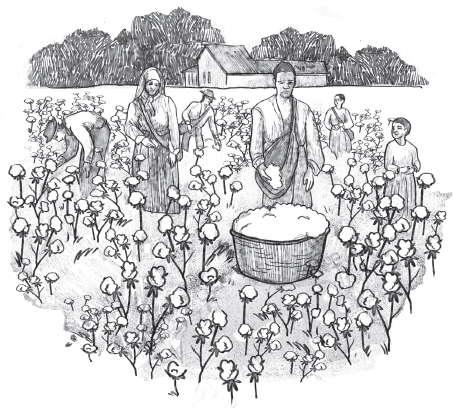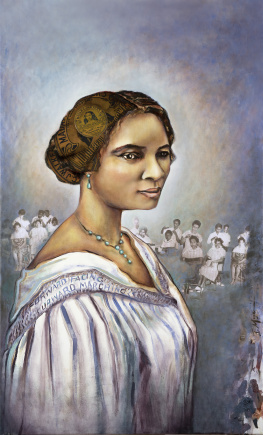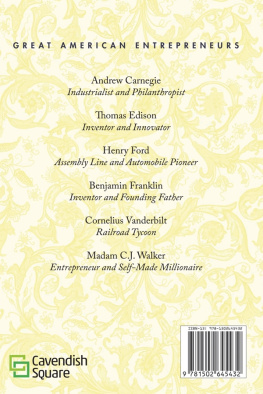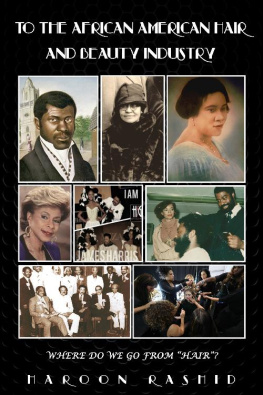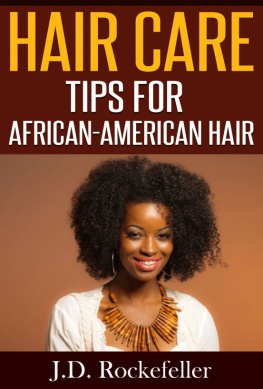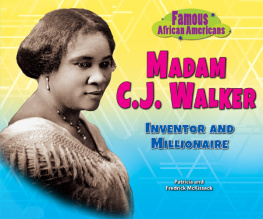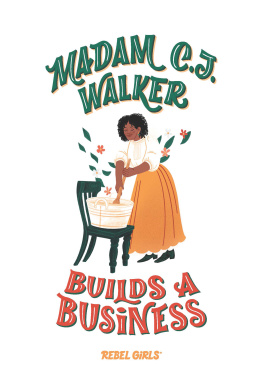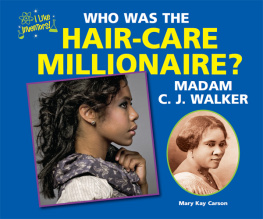Contents
Pagebreaks of the print version

All About
Madam C. J. Walker
ALelia Bundles

All About Madam C. J. Walker
Copyright 2017 by ALelia Bundles
Published by Blue River Press
Indianapolis, Indiana
www.brpressbooks.com
Distributed by Cardinal Publishers Group
A Tom Doherty Company, Inc.
www.cardinalpub.com
All rights reserved under International and
Pan-American Copyright Conventions.
No part of this book may be reproduced, stored in a database or other retrieval system, or transmitted in any form, by any means, including mechanical, photocopy, recording or otherwise, without the prior written permission of the publisher.
ISBN: 978-1-68157-093-8
Author: ALelia Bundles
Editor: Dani McCormick
Interior Illustrator: Kirsten Halvorsen
Book Design: Dave Reed
Cover Artist: Jennifer Mujezinovic
Cover Design: David Miles
Printed in the United States of America
23 22 21 20 19 18 17 1 2 3 4 5 6 7
All About
Madam C. J. Walker
Preface
Madam C. J. Walker was one of the most successful American businesswomen of the early twentieth century. She is remembered as an entrepreneur and pioneer of the modern hair care industry. She also made her mark as a philanthropist, a patron of the arts, and a political activist who spoke out against racial injustice.
Walker had very humble beginnings. She was born Sarah Breedlove on a plantation in Delta, Louisiana in 1867, two years after the end of the Civil War. Her parents, Owen and Minerva Breedlove, died before she was seven years old. As a child, she had almost no formal education.
She married at a very young age and was widowed when she was twenty. In 1888, she and her three-year old daughter Lelia moved to St. Louis where her older brothers were barbers.
She joined St. Paul African Methodist Episcopal Church and met very kind female church members, who helped her adjust to the city. She never forgot their generosity; the example they set became a model for her own philanthropy.
Walker worked as a laundress for many years and made very little money, but she was determined to give her daughter more opportunities than she had had.
There is an old saying that necessity is the mother of invention. This certainly was true for Walker. She was losing her hair because of a severe scalp infection and was desperate for a cure for her bald spots.
She often said that her formula came to her in a dream after she prayed for a solution. But she also took advice from others until she finally came up with the right combination of ingredients.
In 1906, after she married her third husband, Charles Joseph Walker, she began calling herself Madam C. J. Walker. She also began selling an ointment called Madam Walkers Wonderful Hair Grower that became very popular.
In 1908, she opened Lelia College of Beauty Culture to train sales agents to use her products. In 1910 she moved to Indianapolis, Indiana where she built a factory. By 1911, her business was already so successful that she was able to make a $1,000 contribution to the local Young Mens Christian Association (YMCA) for a new building.
She moved to Harlem in 1916 and became involved in political activities including the National Association for the Advancement of Colored Peoples (NAACP) anti-lynching campaign. In 1917, she hosted one of the first large gatherings of American businesswomen when she convened her Madam C. J. Walker Beauty Culturists Union in Philadelphia.
Walker developed an international business with customers all over the United States, Central America, and the Caribbean. She provided jobs for African American women; instead of being hired by someone else as maids, laundresses, and farmworkers, they were able to work for themselves.
When Walker died in 1919, she left more than $100,000 to political causes, organizations, and educational institutions.
In 1998, she became the twenty-first African American to be featured in the United States Postal Services Black Heritage Series. There also are two National Historic Landmarksthe Madam Walker Theatre Center, a cultural arts center in Indianapolis; and Villa Lewaro, her Westchester County, New York mansionthat bear her name.
More than a century after she founded her company, the Madam C. J. Walker Beauty Culture line of products is manufactured by Sundial Brands and sold throughout the United States.
At the root of Walkers success was her belief in her high-quality products, her gift for marketing, and her ability to lead and inspire others.
Chapter 1
Free Born Baby
Baby Sarah brought so much joy to the Breedlove family. Born just two days before Christmas in 1867, she was an early holiday gift. Her parents, Owen and Minerva Anderson Breedlove, smiled at her chocolate brown skin and soft coils of black hair. Inside their drafty cabin in Delta, Louisiana, they celebrated the arrival of their first freeborn child.
By candlelight, her siblings Louvenia, Owen Jr., Alexander, and James all looked at their little sister with high hopes. Like their parents, they had come into the world as enslaved people. Until the Civil War ended in April 1865, they had been owned by Robert W. Burney and worked on his cotton plantation in Madison Parish.
Under the American system of slavery, they were not paid for their labor. Like four million other human beings of African descent, they could not come and go as they pleased. They did not have the same legal rights and privileges as free white Americans. But that did not stop them from having dreams and wishes for themselves and their children.
After Emancipation, the Breedloves were no longer enslaved, but they had no savings and owned no property. With a young family to rear, Owen and Minerva realized it would not be easy to start over in a new place where they had no friends. Because they were used to living and working on the Burney plantation, they decided it was more practical to stay.
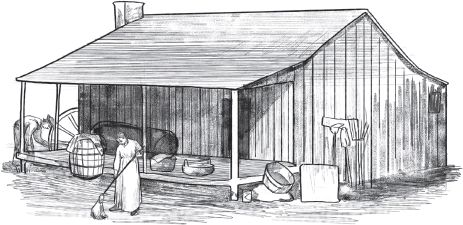
Sarah was born in the Breedlove familys one-room cabin in Delta, Louisiana.
They continued to farm the same land, but now they were called sharecroppers instead of slaves. At the end of each harvest, they turned over all the cotton they had picked to Mr. Burney so he could sell it to a cotton gin. Eventually, the raw cotton ended up at a mill where it was woven into fabric and sewn into shirts, dresses, sheets, and linens.
Many other people made money from the cotton the Breedloves had picked, but they received only a few dollars for several months of hard work. By the time they paid for cabin rent, cottonseed, and other expenses, they always owed more than they had earned. It was a vicious cycle that never allowed them to turn a profit.
Even little girls and boys had to work in the fields. Sarah learned to pull weeds and clean the cotton bolls. She planted corn and cabbage in the family garden and tended the chickens. They all worked from sun up to sun down in the steamy Louisiana sun.
Each year they prayed for their lives to get better, but it was hard to be optimistic. Although they now were free American citizens, they saw little difference in their daily lives.
